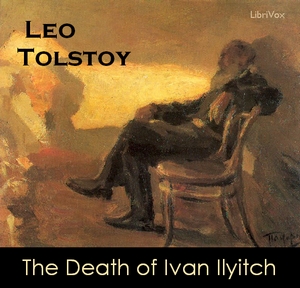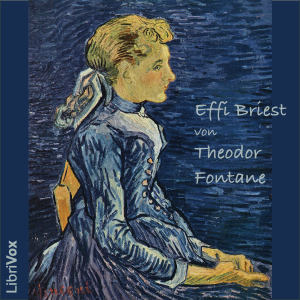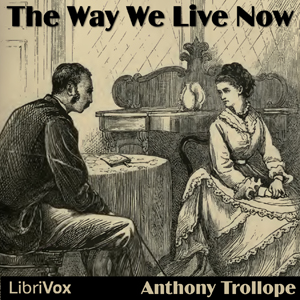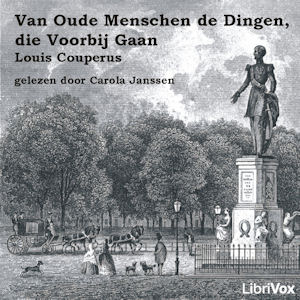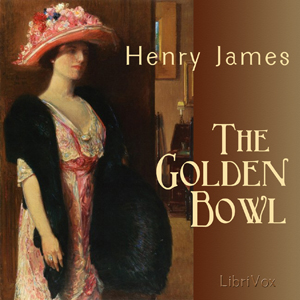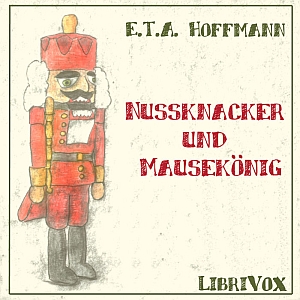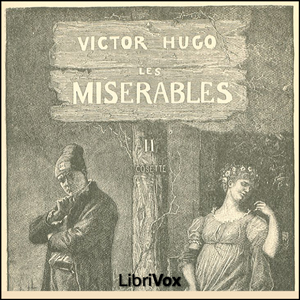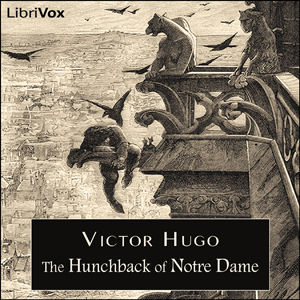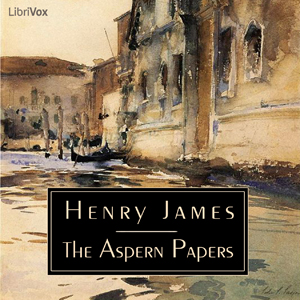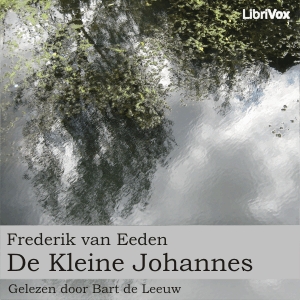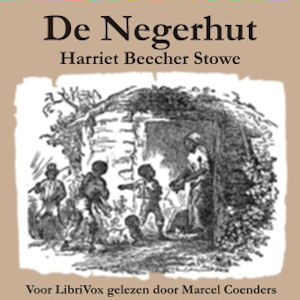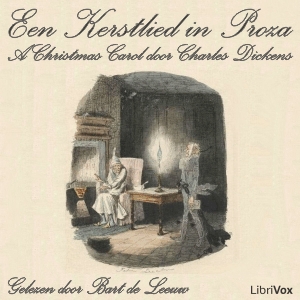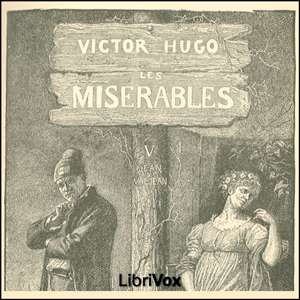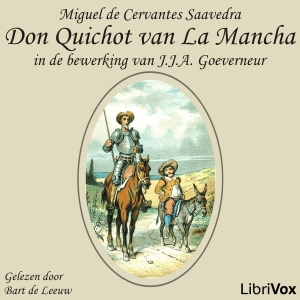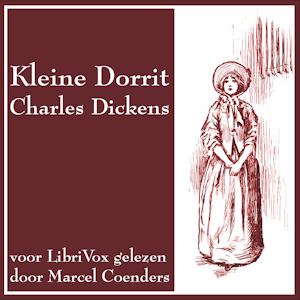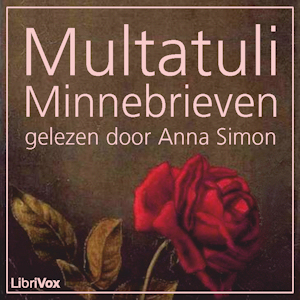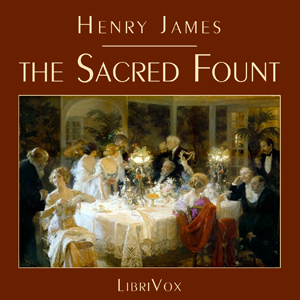In einer Nordseegemeinde taucht vor drohenden Sturmfluten und Deichbrüchen eine gespenstische Gestalt auf dem Deich auf. Der Geist reitet auf seinem Schimmel lautlos in die Fluten um dort unterzugehen. Das gesamte Dorf kennt dieses Zeichen seit über hundert Jahren. Der Erzähler aber nimmt die Gestalt während eines Sturmes wahr, ohne je davor von ihr gehört zu haben.
Da der Sturm zunimmt, sucht er Zuflucht in dem Gasthaus des Dorfes. Dort berichtet ihm der Schulmeister das Schicksal Hauke Haiens, des einstigen Deichgrafen, den sein hartes Schicksal zum “Schimmelreiter” machte. Immer wieder unterbrochen von den Geschehnissen in der Wirtsstube vermischt der Lehrer Fakten und Sage und zeigt so, wie die Legende entstand.
(Zusammenfassung von Felix)
7 episodes
The Tenant of Wildfell Hall, the second and final novel by Anne Brontë, is concerned with the story of a woman who leaves her abusive, dissolute husband, and who must then support herself and her young son. Originally published in June of 1848, it challenged the prevailing morals of the time; a critic went so far as to pronounce it "utterly unfit to be put into the hands of girls." It is considered to be one of the first feminist novels. (Summary from Wikipedia)
54 episodes
The Death of Ivan Ilyitch is the story of a socially ambitious middle-aged judge who contracts an unexplained and untreatable illness. As Ivan Ilyitch is forced to face the death he fears, he asks himself whether the life he thought was so correct was, in fact, a moral life after all. Written after Tolstoy's religious conversion, the novella is widely considered to be one of his masterpieces. (Summary by Laurie Anne Walden)
12 episodes
Effi Briest ist die Titelfigur des gleichnamigen Romans von Theodor Fontane, der in Buchform erstmals 1895 erschienen ist. Als Erscheinungsjahr wurde auf dem Titelblatt 1896 angegeben. Der Gesellschaftsroman wird dem bürgerlichen Realismus zugeordnet und spielt vor dem Hintergrund des durch strenge Normen festgelegten Lebens im Kaiserreich unter Reichskanzler Otto von Bismarck. Der Roman beruht auf einer wahren Begebenheit, der Ehebruchgeschichte der Freifrau Elisabeth von Ardenne, geboren 1853. (Zusammenfassung aus Wikipedia)
36 episodes
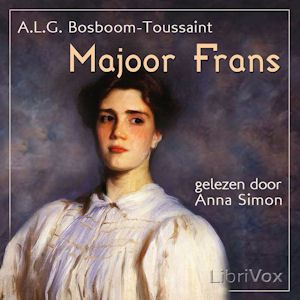
Een arme jonker, Leopold, wordt onverwacht een grote erfenis in het vooruitzicht gesteld na de dood van een oud-tante – onder één voorwaarde: hij moet met een nichtje van haar trouwen. Deze jonge vrouw, die Francis heet, is opgegroeid onder de hoede van haar grootvader, een generaal in het leger. Ze heeft een onconventionele opvoeding gehad die haar onafhankelijk van geest, brutaal en ruw in haar manier van doen heeft gemaakt; ze houdt van schermen en snelle paarden, en heeft zich voorgenomen om nooit te trouwen. Dit on-vrouwelijke gedrag heeft geleid tot haar bijnaam: “Majoor Frans”. Leopold wordt verliefd op haar, en besluit om te proberen haar voor zich te winnen. Dit boek, geschreven in 1874, wordt beschouwd als een karakterroman als reactie op de opkomende vrouwen-emancipatie bewegingen in die tijd. [Beschrijving door Anna Simon]
An impoverished young nobleman, Leopold, has unexpectedly been left a large fortune at the death of a distant relative – under one condition: that he marry a young cousin of hers. This young woman, called Francis, has been raised by her grandfather, who is a general. She has had an unconventional upbringing which has left her independent, outspoken and rough in her manners, with a love for horse riding and fencing, and a resolution never to marry. This unwomanly behavior has earned her the nickname “Major Frans”. Leopold falls in love with her, and decides to try and win her as his bride. This book, written in 1874, is considered a character novel influenced by the emerging women emancipation movements of the time. [Description written by Anna Simon]
27 episodes
The Way We Live Now is a scathing satirical novel published in London in 1875 by Anthony Trollope, after a popular serialization. It was regarded by many of Trollope's contemporaries as his finest work.One of his longest novels (it contains a hundred chapters), The Way We Live Now is particularly rich in sub-plot. It was inspired by the financial scandals of the early 1870s, and lashes at the pervading dishonesty of the age, commercial, political, moral, and intellectual. It is one of the last memorable Victorian novels to have been published in monthly parts. (Summary from Wikipedia)
100 episodes
“Max Havelaar, of de koffij-veilingen der Nederlandsche Handel-Maatschappij” is in 1860 geschreven door Multatuli (pseudoniem van Eduard Douwes Dekker) als aanklacht tegen de behandeling van de plaatselijke bevolking in Indonesie, destijds een Nederlandse kolonie, door Nederlandse en Nederlands-Indische bestuurders. Het is een van de belangrijkste werken uit de Nederlandse literatuur. [Anna Simon]
Max Havelaar: Or the Coffee Auctions of the Dutch Trading Company (Dutch: Max Havelaar, of de koffij-veilingen der Nederlandsche Handel-Maatschappij) is a culturally and socially significant 1860 novel by Multatuli (the pen name of Eduard Douwes Dekker) which was to play a key role in shaping and modifying Dutch colonial policy in the Dutch East Indies in the nineteenth and early twentieth century. In the novel, the protagonist, Max Havelaar, tries to battle against a corrupt government system in Java, which was a Dutch colony at the time. [en.Wikipedia.org]
23 episodes
Zoals de titel al aangeeft gaat het boek over oude mensen (en ouder worden) en de dingen die voorbijgaan. Maar niet alles gaat voorbij met het ouder worden... Een duister geheim uit het verleden werpt zijn steeds groter wordende schaduw over een familie.
30 episodes
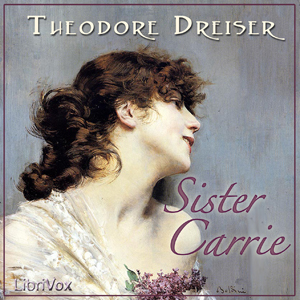
Theodore Dreiser (1871–1945) was an American author of the naturalist school, known for dealing with the gritty reality of life. Sister Carrie (1900) is his first novel and tells the story of a young country girl who moves to the big city (Chicago) where she starts realizing her own American Dream by first becoming a mistress to powerful men and later as a famous actress.Dreiser and his wife significantly altered the original manuscript to make it more palatable to the prevailing sensibilities of the day, but even this toned down version caused a minor scandal, and Dreiser had difficulty finding a publisher for it. This was due to the blurred division line between good and bad in the plot. Although Dreiser's moralizing narrator does assert that, despite the fame and the money she has amassed, Carrie will not be able to achieve peace of mind in her life, the apparent lack of poetic justice -- the notion that immorality should pay in the end, even if only up to a point -- was a concept the reading public were altogether unused to at the time. (summary from wikipedia)
47 episodes

The Tale of Genji (Genji Monogatari) is a classic work of Japanese literature attributed to the Japanese noblewoman Murasaki Shikibu in the early eleventh century, around the peak of the Heian Period. It is sometimes called the world's first novel, the first modern novel, the first romance novel, or the first novel to still be considered a classic... The Genji was written for the women of the aristocracy (the yokibito) and has many elements found in a modern novel: a central character and a very large number of major and minor characters, well-developed characterization of all the major players, a sequence of events happening over a period of time covering the central character's lifetime and beyond. The work does not make use of a plot; instead, much as in real life, events just happen and characters evolve simply by growing older. One remarkable feature of the Genji, and of Murasaki's skill, is its internal consistency, despite a dramatis personae of some four hundred characters. For instance, all characters age in step and all the family and feudal relationships are consistent among all chapters. NOTE: this is a highly condensed version of the text, running to just under 200 pages, whereas the original is nearly 1000 pages long! (Summary by Wikipedia)
22 episodes
The Golden Bowl is a 1904 novel by Henry James. Set in England, this complex, intense study of marriage and adultery completes what some critics have called the "major phase" of James' career. The Golden Bowl explores the tangle of interrelationships between a father and daughter and their respective spouses. The novel focuses deeply and almost exclusively on the consciousness of the central characters, with sometimes obsessive detail but also with powerful insight. (Summary by Wikipedia)
42 episodes
Ein weihnachtliches Märchen.
Marie Stahlbaum bekommt zu Weihnachten einen Nussknacker geschenkt, den sie gleich sehr lieb gewinnt. Noch in der Christnacht wird sie Zeuge, wie Leben in den Nussknacker und die anderen Spielzeuge kommt. Sie beobachtet eine Schlacht zwischen der Spielzeugarmee unter dem Kommando von Nussknacker und den feindlichen Mäusen, angeführt vom siebenköpfigen Mausekönig. Als sich das Schlachtenglück den Mäusen zuneigt, wirft sie ihren Pantoffel und rettet damit die Spielzeugarmee.
Marie ist überzeugt, dass ihr Nussknacker niemand anderes ist als der verzauberte Neffe ihres Paten Droßelmeier. Sie ist fest entschlossen, ihm gegen den Mausekönig beizustehen. (Summary by Hokuspokus)
14 episodes
This is book 2 of 5. An ex-convict breaks parole and starts a new life as a righteous man, but is pursued by a police inspector. Along the way, the ex-convict joins a revolution, adopts a daughter, and beats people up. Hooray. (Summary by smileyman457)
76 episodes
One of the great literary tragedies of all time, The Hunchback of Notre Dame features some of the most well-known characters in all of fiction - Quasimodo, the hideously deformed bellringer of Notre-Dame de Paris, his master the evil priest Claude Frollo, and Esmeralda, the beautiful gypsy condemned for a crime she did not commit. (Summary by Mark Nelson)
61 episodes
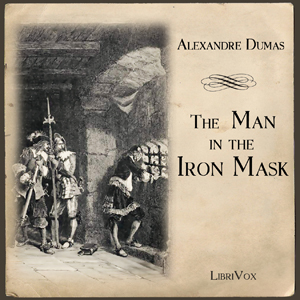
In this, the last of the Three Musketeers novels, Dumas builds on the true story of a mysterious prisoner held incognito in the French penal system, forced to wear a mask when seen by any but his jailer or his valet. If you have skipped the novels between The Three Musketeers and this, a few notes will bring you into the story:On one side – Aramis, now a bishop and secretly the Captain-General of the Jesuit Order, who believes he has found a path to a higher honor – the papacy. Monsieur Fouquet, the vastly rich minister of finance, Aramis’ ally. Philippe, the identical twin of King Louis XIV, who grew up in ignorance of his pedigree, and whose surrogate parents were murdered on the king’s order and himself sent into the notorious Paris prison, the Bastille, there held in solitary confinement.On the other side – King Louis XIV, selected as the twin who would be king by his mother, and who intends that his brother will never challenge him. Monsieur Colbert, first minister, who is jealous of Fouquet and plots his downfall.Unaligned and in danger of collateral damage – d’Artagnan, now captain of the King’s Musketeers and so the king’s chief defender, who suspects plots running beneath the surface and who is trying to unearth them. Athos, now the Comte (Count) de la Fer and one of the most respected noblemen of France. Raoul, Athos’ son and vicomte (viscount), desperately in love with Mademoiselle de la Valliere, who the king has taken as his mistress. Porthos, grown extremely stout and happy as the Baron du Vallon.Aramis discovers the hidden Philippe and hatches a plot to substitute him for the sitting king, putting Louis in Philippe’s cell in the Bastille. This even succeeds… for a short while. But Aramis has not reckoned with a man whose loyalty to the throne exceeds his own welfare and who disastrously reverses the plot. Now it is time for the plotters to scurry to cover, there to figure some way to recover their lost ambitions. (Summary written by Mark Smith.)
64 episodes
Sinclair Lewis’ George F. Babbitt is a complicated and conflicted character. When you think you have his next move figured out he surprises you. As you begin to like him, he does something to evoke the “what a rat” response.
Male menopause wasn’t a pre Great Depression term, but I would say George has all the symptoms. At a pudgy balding forty six he looks at his life, wife, family and business. He sees himself as a pretty successful business man, but when Tanis, the lonely widow, has a leaky roof, he sees an opportunity for perhaps a more fulfilling relationship then he has at home. Add to Tanis a foray into radical politics, and we are about to whiteness an emotional and financial train wreck with Babbitt at the throttle.
This is a long story, but well worth listening to. Human nature hasn’t changed much in the last ninety years. Enjoy the novel (Summary by Mike Vendetti).
34 episodes
Hedwig Marga de Fontayne is een naïeve, labiele vrouw die haar leven lang balanceert tussen waanzin en rede, liefde en lust, verstand en gevoel, religie en goddeloosheid. Het lukt haar niet om die balans te vinden.Hedwig is rijk en geniet van weelde, aanzien en luxe, maar leert voor haar leven ten einde is ook de zwartste kanten van het bestaan kennen met verslaving, prostitutie en armoede.Hedwig is gefascineerd door de dood en de titel is afgeleid van een psalmtekst die in het boek geciteerd wordt: Maar doodgaan scheen haar altijd nog veel beter, nog begeerlijker. Dat zou rust zijn, als die beloofd wordt aan de getrouwen in de psalm, dat zou zachtjes gevoerd worden langs stille wateren langs grote koele meren, dat zou troost zijn, zoals een moeder troost.
31 episodes
Emily Brontë's only novel, published in 1847 under the pseudonym Ellis Bell, tells the tale of the all-encompassing and passionate, yet thwarted, love between Heathcliff and Catherine Earnshaw, and how this unresolved passion eventually destroys them and many around them.
Now considered a classic of English literature, Wuthering Heights met with mixed reviews by critics when it first appeared, with many horrified by the stark depictions of mental and physical cruelty. Though Charlotte Brontë's Jane Eyre was originally considered the best of the Brontë sisters' works, many subsequent critics of Wuthering Heights argued that its originality and achievement made it superior. (Summary by Wikipedia)
34 episodes
This is book 3 of 5. -- An ex-convict breaks parole and starts a new life as a righteous man, but is pursued by a police inspector. Along the way, the ex-convict joins a revolution, adopts a daughter, and beats people up. Hooray. (Summary by smileyman457)
48 episodes
One of James’s favorite short novels, the Aspern Papers tells of the efforts of the nameless narrator to procure the papers of a famous, but now dead, American poet. His attempts to secure them from the poet’s former lover and her niece, now recluses in Venice, are stymied both by them, and by his own mistakes in his quest.
9 episodes
“Bunner Sisters,” like “The Age of Innocence” is set in 1870s New York, however the lives of Ann Eliza and Evelina Bunner reflect impoverished New York. The sisters run a "very small shop, in a shabby basement, in a sidestreet already doomed to decline." Shabby as it is, the sisters are happy in their small orderly community of supportive women. The story tells of the destruction of this life, and how the once content sisters are thrown into the realistic world outside of their little shop. (Summary by Margaret)
13 episodes
De Kleine Johannes is een sprookje, waarin de ontwikkeling van kind tot volwassene en de worsteling met de levensraadsels centraal staan. We volgen het opgroeien van de kleine Johannes of in realiteit de schrijver zelf.Short summary in English: This book is a fairytale, which represents the growing up of the author from a small boy to an adult.
14 episodes
Het boek vertelt over de lotgevallen van een aantal slaven in en om een plantage in de Amerikaanse staat Kentucky. Onder hen zijn Eliza en vooral Oom Tom, slaven van de vriendelijke plantagebezitter Shelbey. Het verhaal begint op het moment dat hun leven ruw verstoord wordt door de financiële situatie van Shelbey, die zich gedwongen ziet Oom Tom en Eliza's zoontje te verkopen. Het boek beschrijft de poging van Eliza om met haar zoontje te vluchten. Intussen vlucht Eliza's man George ook - hij is slaaf van een andere eigenaar en wordt door zijn meester mishandeld. Oom Tom verzet zich niet tegen de verkoop. Hij wordt de Mississippi af gescheept, in de richting van de gevreesde katoenplantages en komt uiteindelijk in handen van de bullebak Simon Legree. (Samenvatting van Wikipedia)
47 episodes
This is book 4 of 5. -- An ex-convict breaks parole and starts a new life as a righteous man, but is pursued by a police inspector. Along the way, the ex-convict joins a revolution, adopts a daughter, and beats people up. Hooray. (Summary by smileyman457)
49 episodes
Around the World in Eighty Days (French: Le tour du monde en quatre-vingts jours) is a classic adventure novel by the French writer Jules Verne, first published in 1873. In the story, Phileas Fogg of London and his newly employed French valet Passepartout attempt to circumnavigate the world in 80 days on a £20,000 wager set by his friends at the Reform Club. (Summary from Wikipedia)
37 episodes
'A Christmas Carol' is een Victoriaanse allegorie over een oude en verbitterde vrek, Ebenezer Scrooge, die in de nacht voor Kerstmis een aantal dromen heeft… (Samenvatting van Wikipedia)This is the Dutch translation of the book: A Christmas Carol by Charles Dickens.
6 episodes
This is book 5 of 5. -- An ex-convict breaks parole and starts a new life as a righteous man, but is pursued by a police inspector. Along the way, the ex-convict joins a revolution, adopts a daughter, and beats people up. Hooray. (Summary by smileyman457)
42 episodes
Door het lezen van te veel ridderromans is Don Quichot zijn verstand kwijtgeraakt. Denkend dat hij zelf een dolende ridder is, verlaat hij zijn huis en begint een dwaaltocht over de wegen en het platteland van Spanje, op zoek naar avonturen. Als doel heeft hij voor ogen het rechtzetten van alle soorten onrecht, om door deze goede daden beroemd te worden. Op zijn trektocht wordt Don Quichot vergezeld door zijn buurman en dienaar Sancho Panza. (naar Wikipedia)
This is a Dutch translation and adaptation of the book: Don Quijote by Miguel de Cervantes Saavedra.
24 episodes
Waverley is set during the Jacobite Rebellion of 1745, which sought to restore the Stuart dynasty in the person of Charles Edward Stuart (or 'Bonnie Prince Charlie'). It relates the story of a young dreamer and English soldier, Edward Waverley, who was sent to Scotland in 1745. He journeys North from his aristocratic family home, Waverley-Honour, in the south of England first to the Scottish Lowlands and the home of family friend Baron Bradwardine, then into the Highlands and the heart of the 1745 Jacobite uprising and aftermath. (Summary by Wikipedia)
43 episodes
On an island off the coast of Chile, Captain Amaso Delano, sailing an American sealer, sees the San Dominick, a Spanish slave ship, in obvious distress. Capt. Delano boards the San Dominick, providing needed supplies, and tries to learn from her aloof and disturbed captain, Benito Cereno, the story of how this ship came to be where she is. Dealing with racism, the slave trade, madness, the tension between representation and reality, and featuring at least one unreliable narrator, Melville's novella has both captivated and frustrated critics for decades. (Summary by Nullifidian)
14 episodes
De familie Dorrit verblijft door schulden belast meer dan 20 jaar in de schuldengevangenis de Marshalsea in Londen. Zullen zij ontlast worden van hun schulden? Zullen de heldin en de ridder op het witte paard met elkaar trouwen in dit inktzwarte sprookje?Een satire op rijkdom, status en macht waarbij zowel de publieke-(politieke) als de private- (financiele) sector belachelijk worden gemaakt. Bijna alle personages zijn gevangen in hun eigen verslaving aan waardeloos geld en valse roem. Helaas heeft dit boek niets aan actualiteitswaarde verloren, want luidruchtigheid en begeerigheid, aanmatiging, hoogmoed en ijdelheid bijven voortwoekeren tot de laatste dag. (Samenvatting door Marcel Coenders)Dutch translation of Little Dorrit by Charles Dickens.
86 episodes
Op het eerste gezicht is Minnebrieven (gepubliceerd in 1861) een brievenroman, met als drie hoofdrolspelers Max en zijn vrouw Tine, en het jonge meisje Fancy, Max' muze. Het is een vervolg op het 2 jaar daarvoor verschenen werk Max Havelaar, ook wat betreft de aanklacht tegen de wantoestanden in het toenmalige Nederlands-Indië. Multatuli springt opnieuw heen en weer tussen fictie en realiteit.Willem Frederik Hermans noemt Minnebrieven "een van de grilligste, wildste boeken die de Nederlandse literatuur rijk is." Volgens Multatuli zelf is het "een getrouwe spiegel van een maand aandoeningen en indrukken. Er bestaat geen boek dat waarder is". En: "’t is alles! Poesie, sarcasme, politiek, wellust, scherpte, logica, godsdienst, alles." (door Anna Simon)
11 episodes
Het gaat hier om een (ingekorte) Nederlandse vertaling van het klassieke werk van Leo Tolstoy. Een aristocratische vrouw verlaat haar ongelukkig huwelijk voor een nieuwe liefde.
174 episodes
Published in 1901, The Sacred Fount delves into the interior observations and obsessions of one Englishman during a weekend gathering in the country. Regarding himself as a master of human psychology, the narrator watches the goings-on of the other guests and weaves theories about the interpersonal implications of what he witnesses, leaving the not infrequently perplexed reader the task of sorting out whether his conclusions are facts or fancies. (Introduction by S. Kovalchik)
14 episodes
Our Mutual Friend (written in the years 1864–65) is the last novel completed by Charles Dickens and is one of his most sophisticated works, combining psychological insight with social analysis. It centres on, in the words of critic J. Hillis Miller, "money, money, money, and what money can make of life" but is also about human values. In the opening chapters a body is found in the Thames and identified as John Harmon, a young man recently returned to London to receive his inheritance. Were he alive, his father's will would require him to marry Bella Wilfer, a beautiful, mercenary girl whom he had never met. Instead, the money passes to the working-class Boffins, and the effects spread into various corners of London society. (Wikipedia)
68 episodes
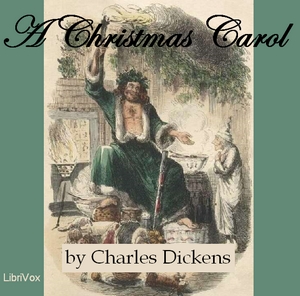
A Christmas Carol is a novella by English author Charles Dickens first published by Chapman & Hall on 17 December 1843. The story tells of sour and stingy Ebenezer Scrooge's ideological, ethical, and emotional transformation after the supernatural visitations of Jacob Marley and the Ghosts of Christmases Past, Present, and Yet to Come. (Summary by Wikipedia)CastEbenezer Scrooge: Andy MinterFred: mbBob Cratchit: David RichardsonGentleman: Martin LangerJacob Marley: Algy PugGhost of Christmas Past: Tricia GFan/Tiny Tim: rashadaYoung Scrooge/Peter Cratchit: Paul AndrewsSchoolmaster/Man 2: Peter BishopFezziwig: John SteigerwaldBelle: AvailleBelle's Husband/Man 3: Levi ThrockmortonGhost of Christmas Present: Barry EadsMrs. Cratchit: Arielle LipshawMartha Cratchit/Girl: Christin ChapelleBelinda Cratchit/Caroline: Amy GramourScrooge's Niece: Veronica JenkinsNiece's Sister: Liberty StumpMan 1: David LawrenceMan 4: Chris DonnellyMan 5: Darren VCharwoman: Kara ShallenbergOld Joe: Tom CrawfordMrs. Dilber: Sandra GCaroline's Husband: Shea McNamaraBoy: SaabNarrator: Elizabeth KlettAudio edited by Elizabeth Klett
5 episodes

Agnes Grey is the daughter of a minister, whose family comes to financial ruin. Desperate to earn money to care for herself, she takes one of the few jobs allowed to respectable women in the early Victorian era, as a governess to the children of the wealthy. In working with two different families, the Bloomfields and the Murrays, she comes to learn about the troubles that face a young woman who must try to rein in unruly, spoiled children for a living, and about the ability of wealth and status to destroy social values. After her father's death, Agnes opens a small school with her mother and finds happiness with a man who loves her for herself. (Summary by Wikipedia)Cast:Narrator/Mary Grey/Grandmama Bloomfield: CaprishaPageAgnes Grey: Amanda FridayEdward Weston: Max KörlingeAlice Grey: Tiffany Halla ColonnaRichard Grey: Aidan BrackMr. Murray/Uncle Robson: AnthonyMrs. Murray/Jem's Wife: Elizabeth KlettRosalie Murray: Arielle LipshawMatilda Murray: Elizabeth BarrMr. Hatfield: Algy PugJem/Mr. Smith: Martin GeesonServant: Charlotte DuckettNancy Brown: Beth ThomasMrs. Bloomfield: Victoria MartinTom Bloomfield: GraceMary Ann Bloomfield: April GonzalesMr. Bloomfield: Robert HoffmanBetty: KristingjAudio edited by Amanda Friday
25 episodes

A Tale of Two Cities is a novel by Charles Dickens, set in London and Paris before and during the French Revolution. With well over 200 million copies sold, it ranks among the most famous works in the history of fictional literature. The novel depicts the plight of the French peasantry demoralized by the French aristocracy in the years leading up to the revolution, the corresponding brutality demonstrated by the revolutionaries toward the former aristocrats in the early years of the revolution, and many unflattering social parallels with life in London during the same time period. It follows the lives of several protagonists through these events. The 45-chapter novel was published in 31 weekly instalments in Dickens' new literary periodical titled All the Year Round. From April 1859 to November 1859, Dickens also republished the chapters as eight monthly sections in green covers. Dickens' previous novels had appeared only as monthly instalments. The first weekly instalment of A Tale of Two Cities ran in the first issue of All the Year Round on 30 April 1859. The last ran thirty weeks later, on 26 November. (Summary by Wikipedia)
17 episodes
This is the first volume of a three volume novel. In this novel, Amelia marries William Booth against her mother's desires, and the two must move to London. Fielding explores the issues of married life such as infidelity and whether women's intelligence is equal to men's. (Summary by Libby Gohn)
41 episodes

Martin Chuzzlewit was Dickens 6th novel, serially published in 1843 - 44. Irrespective of the fact that Dickens considered - "Chuzzlewit is in 100 points immeasurably the best of my stories"- it failed to resonate with, or capture the public's imagination as many of its predecessors had done. However by the1850s its popularity had risen and it eventually found recognition as the great novel that it is.The beginning is somewhat protracted but the prose is magnificent throughout. The theme of the story is about selfishness and obstinacy. The callow eponymous hero Martin Chuzzlewit is estranged from his grandfather (Martin Chuzzlewit the elder) for having the temerity to fall in love with his grandfather's ward — Mary Graham. The Chuzzlewit family are all placed under the microscope as Martin journeys on a voyage of what can only be termed as "self-discovery". His journeying takes him to America, where his experiences change him forever and he returns a far better man. Woven around the theme of the book are some of Dickens most finely drawn characters, ranging from the comic: Seth Pecksniff, an oily unctuous hypocrite, Mrs Gamp a nurse with a propensity for strong liquor and a delightful way of mangling the English language: to the macabre Jonas Chuzzlewit a dark brooding murderer. There are plots within plots, deception and artifice abound, confidence tricksters on both sides of the Atlantic, and a vicious murder.This is a satirical novel, particularly when Martin is in America and Dickens, who never shirked from social criticism, utilized that portion of the book to express his feelings on his experiences during his visit to America in1842. It is a comical novel, humour being prevalent throughout, witness Mrs Gamp "Rich folk may ride on camels, but it ain't so easy for em to see out of the needles eye". The irrepressible and precocious young Bailey strutting and posing in his Footman's livery. The deeply melancholic Augustus Moddle, desperate to be run over but finding no takers! and doomed to marry the wrong sister.
56 episodes
A look at the year 1891 through literature and non-fiction essays first published that year, including works by Mary E Wilkins, Sir Arthur Conan Doyle, Sara Orne Jewett, and Oscar Wilde. (Summary by BellonaTimes)
10 episodes
The wonderful adventures of Marian after she meets the strange Mr. Jugg. "And who are you, Mr Jugg?" she inquired. "I'm the King of the Bumpies," he replied. When Marian was puzzled there came a little straight line, exactly in the middle, between her two eyebrows. "What are bumpies?" she said. "My hat!" he gasped. "Haven't you ever heard of bumpies?" Marian shook her head. "Oh dear, oh dear!" he sighed. "Have you ever heard of angels?" "Well, of course," said Marian. "Everybody's heard of angels." "Well then, bumpies," said Mr Jugg, "are baby angels. They're called bumpies till they've learned to fly." "I see," said Marian, "but why are they called bumpies?" "Because they bump," said Mr Jugg, "not knowing how." (Summary by Phil Chenevert )
14 episodes

A mentally unstable genius, Victor Frankenstein, inspired by the dreams of ancient alchemists and empowered by modern science, creates a humanoid but fails to nurture and educate it after it comes to life. It wanders alone into a hostile world, where fear of its size and ugliness subjects it to violence and ostracism, which in time it learns to blame upon its maker. As compensation for its suffering, it demands that he create a companion with whom to share its outcast life. Moved by the creature's account of its sufferings, the scientist agrees, but a long period of procrastination awakens doubts that ultimately cause him to break his promise. In retaliation, the creature begins a campaign of vengeance. Although its serious crimes are limited to those which will wound his maker's heart, Victor imagines much more widespread harm, supposing the human race itself to be the creature's intended victim. There then follows a chase into the frozen north, which the creature prolongs so as to destroy his pursuer by exposure and exhaustion.
This story, narrated by Victor, forms a frame surrounding the creature's tale of its wanderings, education, and unhappy encounters with human beings. Victor's narrative is itself framed within a series of letters written by the young mariner who rescues him from an iceberg while engaged in his own ambitious scientific endeavor, searching for the North Pole.
This novel was begun while the author and her lover, Percy Shelley, were in hiding from her father and Percy's wife on the shores of Lake Geneva, where they were the frequent house guests of Lord Byron. The young people all began to write "ghost" stories, but only Mary's was destined to enjoy success. The novel was published in 1818. Percy contributed a preface and later made extensive emendations. After his death Mary herself thoroughly revised the text and published it again in 1831. This is the text read in this project. (Summary by Thomas Copeland)
29 episodes
Het eerste literaire werk van Charles Dickens gepubliceerd onder zijn pseudoniem BOZ. Korte verhalen over alledaagse mensen in alledaagse situaties. (Samenvatting door Marcel Coenders)
59 episodes
Originally entitled A frutefull pleasaunt, and wittie worke of the beste state of publique weale, & of the newe yle, called Utopia: written in Latine, by ... Syr Thomas More knyght, and translated into Englishe by Raphe Robynson ...The first book tells of the traveller Raphael Hythloday, to whom More is introduced in Antwerp. The second book consists of Hythloday's description of the island and people of Utopia, their customs, laws, religions, economy, language and relations with other nations. Hythloday portrays Utopia as an idealised state, where all property is common to all the people and money does not exist within its bounds, thus, he argues, removing all poverty, hunger and fear, and most criminal acts. More himself appears unconvinced by some of his narrator's arguments.This is recorded from a reprint of the 1556 Robinson translation, with a foreword by William Morris. (Summary by Ruth Golding)
15 episodes
"Maggie Brown is torn between her mother who constantly tells her to live for her selfish brother (to whom she gives all her love) to her wish to marry Frank and live for herself. Maggie's plight for independence shows the change in women's role, which started to take place during that time. But it also keeps to the tradition of an almost Cinderella story: the pure woman does the best for everyone but herself and is rewarded for that. In addition, this is a very interesting story, written in Gaskell's remarkable style. When you read it, you are transported to another time, and place". (Summary by Stav Nisser.)
11 episodes
Edith Wharton's 1913 novel is a devastating critique of American upward mobility, told through the journey of Undine Spragg from fictional Midwestern Apex City to New York to Paris. Undine is determined to acquire money and position through marriage, even if it means multiple divorces. - Summary by Elizabeth Klett
46 episodes
"When travelling in Canada, in the region north of Lake Ontario, I came upon traces of the somewhat remarkable life which is the subject of the following sketch.
Having applied to the school-master in the town where Bartholomew Toyner lived, I received an account the graphic detail and imaginative insight of which attest the writer's personal affection. This account, with only such condensation as is necessary, I now give to the world. I do not believe that it belongs to the novel to teach theology; but I do believe that religious sentiments and opinions are a legitimate subject of its art, and that perhaps its highest function is to promote understanding by bringing into contact minds that habitually misinterpret one another." (From the Preface)
"One of the most remarkable novels of the year."-- New York Commercial Advertiser.
"Powerful in conception, treatment, and influence."-- Boston Globe.
18 episodes
In May Sinclair’s remarkable first novel, Audrey Craven is a beautiful young woman who has by her idiosyncracies acquired a thoroughly undeserved reputation for originality. In fact, Audrey is a shallow, selfish, malleable person of negligible intelligence, with a fastidious horror of anyone who might be considered a nobody. Her pursuit of the stimulation of extraordinary minds (and her persistent fantasy of being somebody’s Muse) brings her into contact with serious women and men representing the profoundest passions of art, religion, science, and love. The question is, will these encounters prove to be her salvation, or will her vindictive self-centeredness damage the ardent lives she touches? (Expatriate)
27 episodes
語り手と同じ下宿にいた岡田は、無縁坂に住むお玉と、帽を取って挨拶をするようになった。お玉は、高利貸、末造の妾であった。ある日、青大将がお玉が飼っている紅雀を襲った。そこに岡田が通りかかり、蛇を退治してあげる。お玉は岡田と近づきになりたいと思い、末造が来ないと決まった日に、下女を帰らせ、岡田を待った。しかし、その日限り、岡田は一人でなく、行き帰りの二度とも連れ立って歩いていた。そして、岡田はその日を最後に、下宿を引き払って、ドイツに留学した。The storyteller describes about the love between Okada (his friend) & Otama (a mistress of an usurer). Okada met Otama when he's walking around. (by ekzemplaro)
24 episodes


